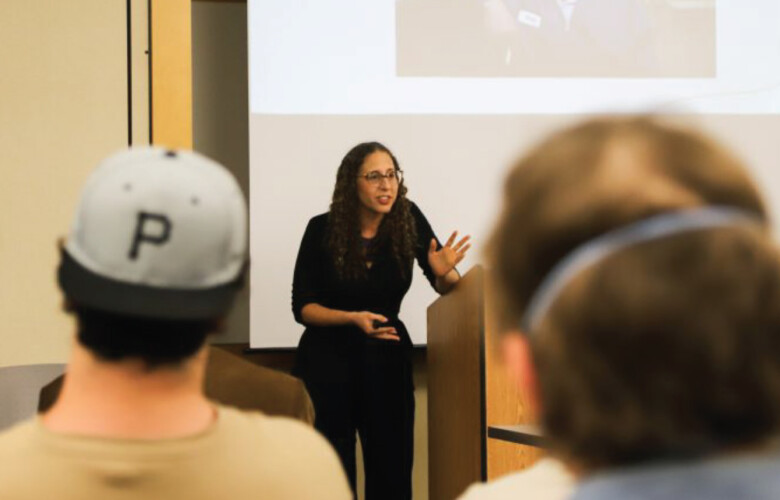Pulitzer-prize winner Farah Stockman to speak at Carmel Clay Public Library
March 3, 2025Her book, American Made: What Happens to People when Work Disappears investigates the impact of an Indiana factory closure In partnership between the Carmel Clay Public Library and Indiana Humanities,…
Her book, American Made: What Happens to People when Work Disappears investigates the impact of an Indiana factory closure
In partnership between the Carmel Clay Public Library and Indiana Humanities, Pulitzer-prize winning writer Farah Stockman will be at the main branch to discuss the role work plays in Americans’ sense of identity and belonging on March 19.
Stockman, who currently serves on the New York Times editorial board, will be in conversation with Carmel City Councilman Jeff Worrell discussing the themes present in her book American Made and the three Indiana workers whose lives unravel when a factory closes.
“American Made explores the ways in which national and international economic events are felt in local communities,” said Megan Telligman, director of programs at Indiana Humanities. “We’re excited for the conversation with Farah Stockman where we further explore Hoosier experiences and the way work impacts individuals and communities in our state.”
Tickets are free but registration is required.
Who: Journalist and author Farah Stockman
What: Free public conversation about her book, American Made: What Happens to People when Work Disappears
Where: Carmel Clay Public Library, 425 E. Main St. Carmel, IN 46032
When: Wednesday, March 19, 6-7:30pm
About Farah Stockman
Farah Stockman joined the New York Times editorial board in 2020 after covering politics, social movements, and race for the national desk. She previously spent sixteen years at the Boston Globe, nearly half of that time as the paper’s foreign policy reporter in Washington, D.C. She has reported from Afghanistan, Pakistan, Iran, South Sudan, Rwanda, and Guantánamo Bay. She also served as a columnist and an editorial board member at the Globe. In 2016, she won the Pulitzer Prize for a series of columns about the efforts to desegregate Boston’s schools. She lives in Cambridge, Massachusetts, but also spends time in Michigan.
About Jeff Worrell
Jeff Worrell is a long-time Carmel, Indiana resident, leader, and businessman. His attitude of service and his passion for Carmel has been displayed throughout his leadership roles in the city, including 1994 and 2004 President of the Carmel Chamber of Commerce (now OneZone), St. Vincent – Carmel Hospital Board, Carmel Christkindlmarkt Board, CarmelFest Board, Rotary Club of Carmel, Good Day Carmel, and the Carmel Fourth of July fireworks program. He also previously served as the Carmel City Council President. Jeff and his wife Shari have lived in Carmel for 32 years and have two adult children. Shari and Jeff enjoy the arts, traveling, running, snow skiing, and volunteering at their church, Our Lady of Mount Carmel.



